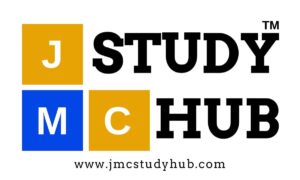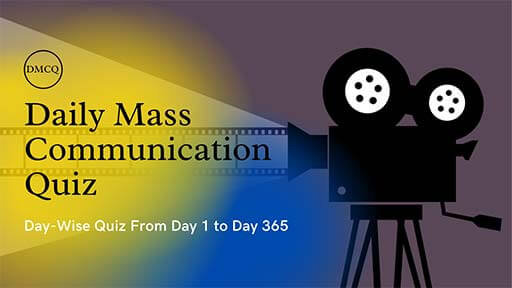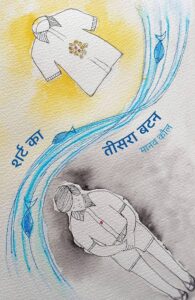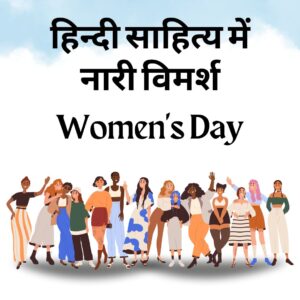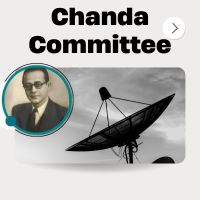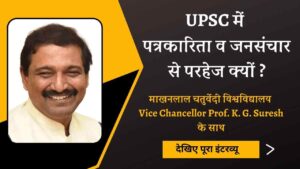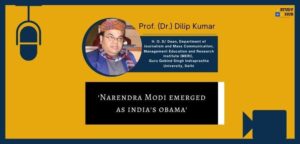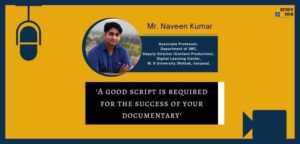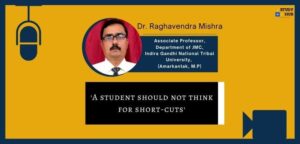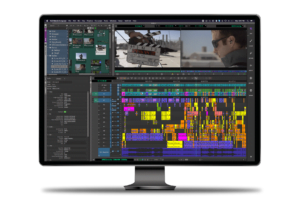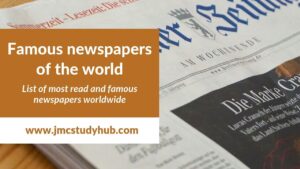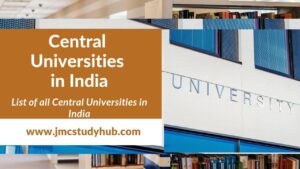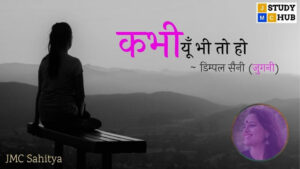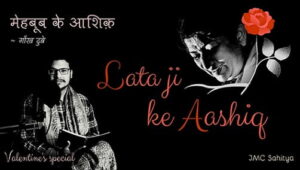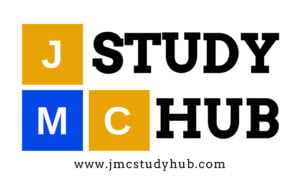Daily Mass Communication Quiz (DMCQ) boost your concepts through day wise solved quiz from the entire course of Journalism and Mass communication (JMC) with detail explanations.
Journalism and Mass Communication Objective Questions (DMCQ)
Q 1. The originator of the phrase ‘press is, the fourth estate’ is
(A) North Cliff
(B) Edmund Burke
(C) Lord Macaulay
(D) Rudyard Kipling
Correct Answer: (C) Lord Macaulay
Explanation: The originator of the phrase ‘press is, the fourth estate’ is Lord Macaulay.
Q 2. To avoid libel changes, a journalist__________________.
(A) Should avoid confidential content in notes
(B) Should check all sources carefully
(C) Should distinguish accuracy from truth
(D) All of the above
Correct Answer: (D) All of the above
Explanation: Libel is the publication of writing, pictures, cartoons, or any other medium that expose a person to public hatred, shame, disgrace, or ridicule, or induce an ill opinion of a person, and are not true.
Q 3. What is embargo?
(A) A ship, which often comes late
(B) A ban on publication before a specific date
(C) A story, which has no end
(D) None of these
Correct Answer: (B) A ban on publication before a specific date
Explanation: An embargoed release is a media release or announcement that is shared with the media in advance of its publishing date.
Q 4. What is yellow journalism?
(A) Exploitative sensational
(B) Classified telephone directory
(C) A low priced novel
(D) None of these
Correct Answer: (A) Exploitative sensational
Explanation: Yellow journalism uses sensationalism and exaggeration to attract readers. It is usually not well-researched and often only tells one side of the story.
Q 5. What is typography?
(A) Is a system of Government
(B) A choice of type to ensure image clarity
(C) A branch of photography
(D) None of these
Correct Answer: (C) A branch of photography
Explanation: Typography is an unusual subject to photograph. That’s partly because it’s so commonplace, making it easy to ignore. If you spend time actively looking at typography, you’ll discover how striking it can be as a subject.
Q 6. What is lithography?
(A) A system of local bodies
(B) Circulation of newspapers
(C) A method of printing
(D) None of these
Correct Answer: (C) A method of printing
Explanation: Lithography is a printing process that uses a flat stone or metal plate on which the image areas are worked using a greasy substance so that the ink will adhere to them by, while the non-image areas are made ink-repellent.
Q 7. A person (or group) who has control over what information is disseminated to the audience is known as:
(A) Newscaster
(B) Reporter
(C) Regulator
(D) Gatekeeper
Correct Answer: (D) Gatekeeper
Explanation: Someone who reads out the reports on a television or radio news Gatekeeping occurs at all levels of the media structure—from a reporter deciding which sources are presented in a headline story to editors choosing which stories are printed or covered.
Q 8. A journalist who is not attached with any newspaper is called:
(A) Free Lancer
(B) Retainer
(C) Correspondent
(D) Stinger
Correct Answer: (A) Free Lancer
Explanation: Freelancers usually earn money on a per-job basis, charging hourly or daily rates for their work.
Q 9. The reading of the script to check the errors is called:
(A) Composing
(B) Editing
(C) Proof-reading
(D) None of these
Correct Answer: (C) Proof-reading
Explanation: Proofreading is the final stage of checking a text before it is published or shared. It focuses on correcting minor errors and inconsistencies (for example, in punctuation and capitalization).
Q 10. OB stands for:
(A) Outside Broadcast
(B) Outdoor Broadcast
(C) Official Beat
(D) None of these
Correct Answer: (A) Outside Broadcast
Explanation: OB refers to outside broadcasting van used for transmission purpose during live reporting of any event.
